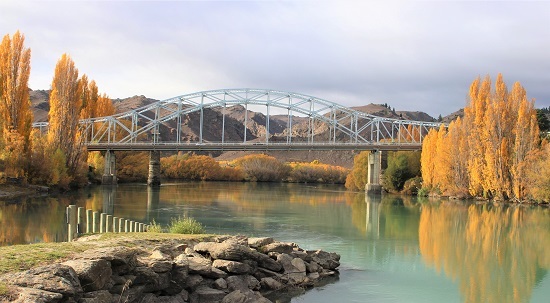Clearer understanding of Maori role needed
Jill Herron
28 April 2022, 7:30 PM
 Debating a proposal to formalise arrangements with Aukaha Ltd is the Central Otago District Council. Wednesday’s meeting was a hybrid with some councillors and Mayor Tim Cadogan joining via video link and some attending in person. At left is Cr Nigel McKinlay, centre Cr Neil Gillespie(chairing the meeting due to the physical absence of the Mayor), at right Cr Stephen Jeffery.
Debating a proposal to formalise arrangements with Aukaha Ltd is the Central Otago District Council. Wednesday’s meeting was a hybrid with some councillors and Mayor Tim Cadogan joining via video link and some attending in person. At left is Cr Nigel McKinlay, centre Cr Neil Gillespie(chairing the meeting due to the physical absence of the Mayor), at right Cr Stephen Jeffery.Marking a “significant milestone” in the Central Otago District Council’s partnership journey with Maori by formalising arrangements, raised concerns from some around the council table this week.
The commercial element involved in the local authority signing a “partnership protocol” agreement with Maori regional consultancy, Aukaha Ltd, was questioned by some councillors.
While all agreed that working closely with mana whenua – people with historic and territorial rights over land – was desired and legally required, paying for such input appeared to be a sticking point.
It is widely accepted that mana whenua have a special cultural and spiritual relationship with the environment and this is a matter of national importance under the Resource Management Act.
Aukaha Ltd employ professional planners, consents officers and an ecologist with much of the focus of their work being around environmental protection. They act as consultants who gather feedback from iwi, often through their representative organisations(runanga) across Otago and are frequently required to provide opinion and information on resource consent applications, new projects and district planning documents.
In a report to council the organisation recorded recent input into the Central Otago District Plan review, draft Central Otago Destination Plan and draft Vincent Spatial Plan.
“Aukaha staff work with people across Otago providing services that aim to make our region a better place to live by bringing mana whenua perspectives to the fore.
In the Cultural and Economic Development team, the aim is to deliver innovative solutions to build and strengthen a mana whenua presence in regional development. Their mahi includes the development of cultural narratives linked to landscape that can inform project work, and embedding mana whenua cultural values and stories through physical representations in new developments,” the report stated.
The work had been organised and paid for in a “piecemeal, cost-recovery basis” to date, Wednesday’s CODC meeting was told, but to progress working arrangements, staff requested $70,000 be allocated to a new partnership protocol.
This represented $35,000 in new spending. “Aukaha advise that partnership funding provides certainty that Aukaha staff can commit time and resource to engaging in Council’s strategic planning processes,” the staff report stated.
Councillor Nigel McKinlay questioned whether the spending represented good “guardianship” of ratepayers money.
He felt other cultural entities supplied information to council without invoicing for it and that entering a formal partnership impinged on the independence of the elected members, as the governing group of the council.
Crs Tracey Paterson, Cheryl Laws and Stu Duncan also wanted clarification of the commitment involved and funds being spent.

Protection of land and waterways like the Clutha River/Mata-Au (above) is high on both council and Maori groups’ agendas.
Some felt it would be difficult to explain the nature of the relationship to constituents when it was fairly new and different from traditional and conventional arrangements.
Wording such as ‘partnership’ and ‘consultancy’ in relation to Aukaha Ltd, inferred a predominantly commercial arrangement and perhaps one involving sharing of decision-making. Council chief executive officer, Sanchia Jacobs, said consultancy was “a very pakeha word” and Aukaha was “different in form” from commercial consultancy businesses.
She said the new agreement was a progression and show of commitment to the council’s future relationship with Aukaha and a better way of working together.
The financial commitment - eventually agreed upon by council although not unanimously - was “relatively conservative”, Sanchia said.
“Our neighbours are committing $150,000 to $250,000 per annum and I’m not suggesting we go to that level.”
Aukaha have formal relationship agreements in place with the Otago Regional Council, Queenstown Lakes District Council and the Dunedin City Council.
CODC community development adviser Rebecca Williams told council the new arrangement would allow Aukaha, as representatives of runanga, to better contribute to decision-making. Council and mana whenua working together was “very natural”, she said, and made sense.
“Both are very similar and both exist to serve the interests of the communities they serve, from now and into future. Very few organisations exist in perpetuity to do those things.”



